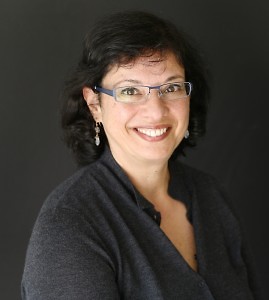The World Affairs Council of Western Michigan (WACWM) has been sponsoring the Great Decisions Global Discussions Series since the late ‘50s, bringing credible speaker-experts to West Michigan to lead conversations about pressing international issues.
Some years, the diplomatic corps is well-represented as it was last year with former ambassadors Barbara Stephenson and James Nealon. In 2018, the think-tanks were prominent, as evidenced by Desiree Cormier from the Albright Stonebridge Group and Stephanie Young from the RAND Corporation.
Starting on February 10-11, the 2020 Great Decisions series is punctuated by international journalists. The series leads off with Raza Rumi on the India-Pakistan conflict, a Pakistani media influencer so influential that he was targeted for assassination by the Taliban and barely escaped, taking his family to the United States in the aftermath.
Rumi is followed on February 17-18 by NPR’s South East Asia correspondent Julie McCarthy, based in Manila and presenting on the state of The Philippines under its mercurial leader Rodrigo Duterte. She has had many dangerous assignments, such as tracking al-Qaida in Europe after 9-11.
After five additional weeks of intriguing discussions led by academics, think-tank researchers and activists, the series ends on March 30-31 with Pulitzer Prize-winning journalist Sonia Nazario on Central American immigration and U.S. foreign policy. Nazario turned her Los Angeles Times chronicle of a boy’s harrowing sojourn from Honduras to the United States to find his mother into a best-selling book titled Enrique’s Journey.
To do her research, Nazario braved the treacherous northern path to the U.S. border, including riding the notorious trains with migrants clinging in corners, couplets and roofs of the speeding locomotives, often hunted by gangs and violent immigration police.
“Each year, we search the world for credible thought-leaders to inform us on important global issues. This year, it was brave and thoughtful men and women from the journalism vocation who offered the most compelling content about some of our topics,” said WACWM director of programming Erica Kubik.
The other five topics being covered are security in the Red Sea; climate change; human trafficking; artificial intelligence; and Chins in Latin America.
All eight topics are suggested to WACWM each year by the Foreign Policy Association of America as the “eight global topics Americans should know more about and be talking about.” Each speaker-expert presents twice, on Monday evenings at 6 p.m. in Aquinas College’s Performing Arts Center and Tuesday noons at Calvin University’s Covenant Fine Arts Center Recital Hall.
More information on the series and presenters can be found at www.worldmichigan.org.
The Rapidian, a program of the 501(c)3 nonprofit Community Media Center, relies on the community’s support to help cover the cost of training reporters and publishing content.
We need your help.
If each of our readers and content creators who values this community platform help support its creation and maintenance, The Rapidian can continue to educate and facilitate a conversation around issues for years to come.
Please support The Rapidian and make a contribution today.


